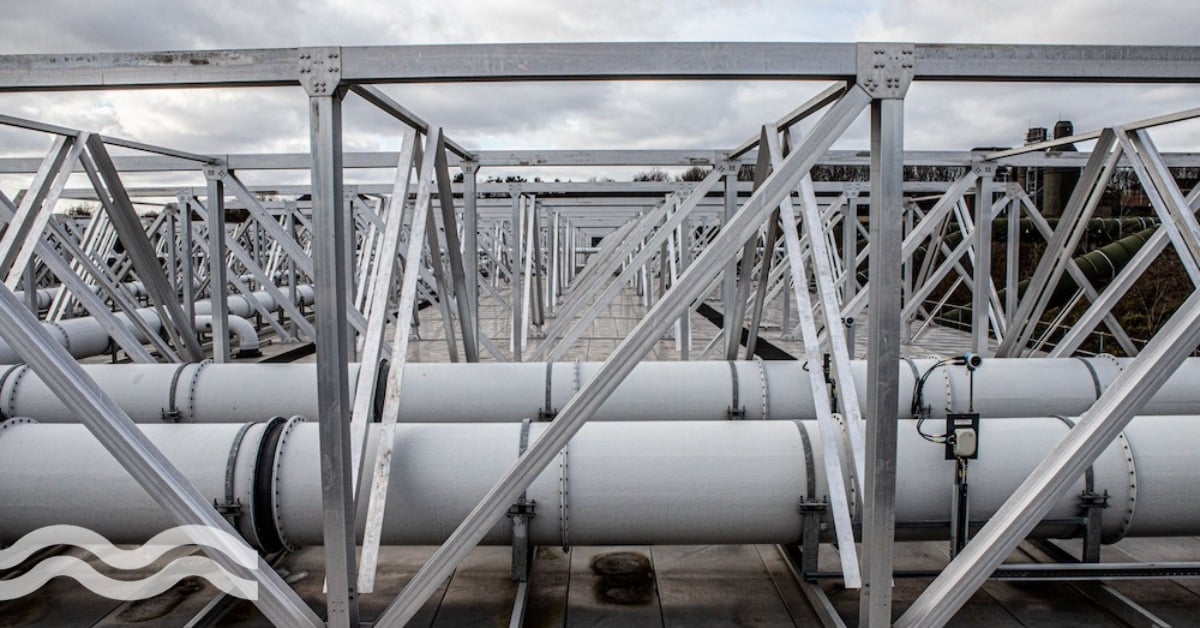Is Briton falling behind EU with combined sewer overflow plan?

Is the United Kingdom falling behind Europe with its new combined sewer overflow plans or should it be taking note of what its neighbours are doing?
A new thought leadership report from engineering services company Jacobs, argues that the solution lays in emerging digital solutions.
When sewers make frontpage news
One of the biggest, if not the biggest, news stories to dominate the headlines in the UK in recent years has been British water companies 'dumping' large volumes of sewage into its rivers and surrounding oceans.
Earlier this year, a damning parliamentary report revealed that all rivers in England are polluted to some degree.
Surfers Against Sewage (SAS), a group formed to protect the UK's oceans, issued a pollution warning at the start of September for more than 100 beaches amid the use of combined sewage overflow (CSO) by water companies.
The new report from the Department for Environment, Food & Rural Affairs, says that in 2021, 90 per cent of storm overflows discharged at least once, with five per cent discharging more than 100 times, including in high-priority nature sites such as sites of special scientific interest.
Under current UK guidelines, discharges are allowed to be used after heavy rainfall, to stop the sewage system from being overwhelmed - but they are facing growing criticism from the public.
In its latest annual environmental performance report for water companies, the Environment Agency stated that the sewage discharge is the "worst we have seen for years".
The £56 billion plan
In response and in late August, the UK Department for Environment, Food & Rural Affairs released its Storm Overflows Discharge Reduction Plan - a report on the feasibility of elimination of discharges from storm overflows.
In his forward, the Rt Hon George Eustice MP secretary of state for environment, food and rural affairs, said: "The Victorians introduced storm overflows as a safety valve for combined sewage systems.
"Now, under pressure from climate change and population growth, water companies use them far too often. This harms the environment, wildlife, and everyone who enjoys our seas and rivers.
"That’s why this plan sets out a mandatory £56 billion investment programme to sort the problem out.”
If this plan comes to pass, it would be the largest infrastructure project to restore the environment in water company history and will demand UK water companies invest more than they have done so before.
The plan sets out two new targets:
- By 2035, water companies will have: improved all overflows discharging into or near every designated bathing water, and improved 75 per cent of overflows discharging to high-priority sites
- By 2050, no storm overflows will be permitted to operate outside of unusually heavy rainfall or to cause any adverse ecological harm
“That’s why this plan sets out a mandatory £56 billion investment programme to sort the problem out.”
The new targets will also water companies to ensure their infrastructure keeps pace with increasing external pressures, such as urban growth and climate change, without these pressures leading to greater numbers of discharges.
It also details the strengthening of the monitoring requirements on water companies to ensure that they have a comprehensive picture of the use and impact of storm overflows.
Learning from the continent
In a new thought leadership report, engineering consultancy Jacobs found that CSOs in the UK receive a higher level of public attention and are more heavily scrutinised than in European Union (EU) countries.
The engineering consultancy also stated that “the current regulatory framework set out in EU Directives makes little direct mention of CSOs and expectations or requirements for their management and, as a result, Member States have historically taken different approaches to enacting these in national legislation and guidelines”.
Furthermore, despite the clear standards being in place for designated bathing waters, the UK performs poorly when it comes to the Bathing Water Directive compliance, compared to the EU.
Water companies are currently investing in monitoring and analysis technology to better understand how their combined sewer networks perform. Currently, between 2020 and 2025, approximately £3.1 billion is being invested in sewer overflow improvements.
The right investment
According to Jacobs, while the UK invests in water infrastructure at greater levels compared to other European countries, a comparative analysis of CSO management investment alone is difficult.
It cites its current undertaking, the Thames Tideway Tunnel project, a 25-kilometre long tunnel designed to modernise London's 150-year-old sewer system, as achieving substantial reductions in CSOs.
“Jacobs is urging water companies to introduce smart technology and sensors into their wastewater networks.”
But it also expresses a desire to explore other resolutions, such as nature-based solutions and grey-intensive stormwater treatment options.
Its main argument however is for the UK water companies to collaborate and invest in digital solutions.
Jacobs is urging water companies to introduce smart technology and sensors into their wastewater networks to understand how systems are performing in real-time, alerting operators to potential incidents and avoiding damaging spills, floods, blockages and discharges.
Of course, UK water companies have already taken steps in this direction with UK water monitoring start-up, Watr, completing its collaboration with water utility, Anglian Water.
The engineering consultancy believes this is a space where water companies could go further and work towards a complete catchment-wide digital integration of sewer, clean water and surface water networks and assets.


